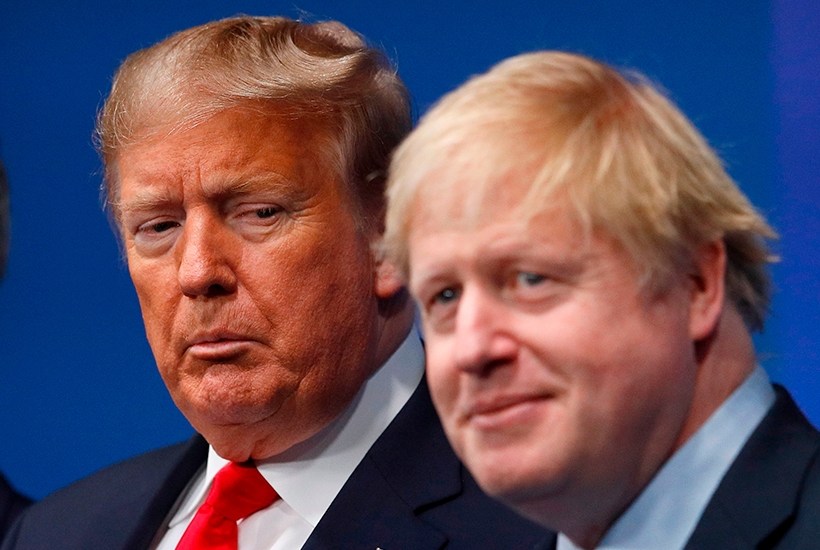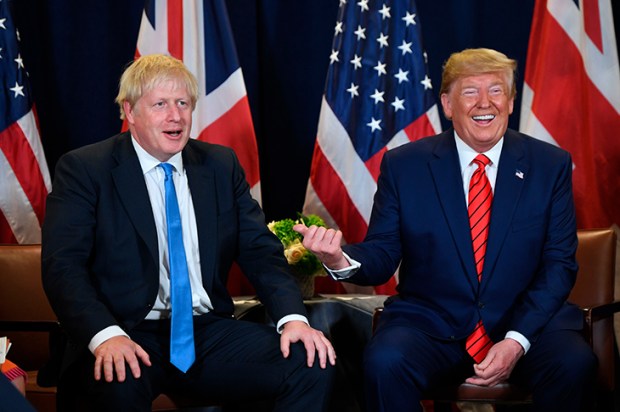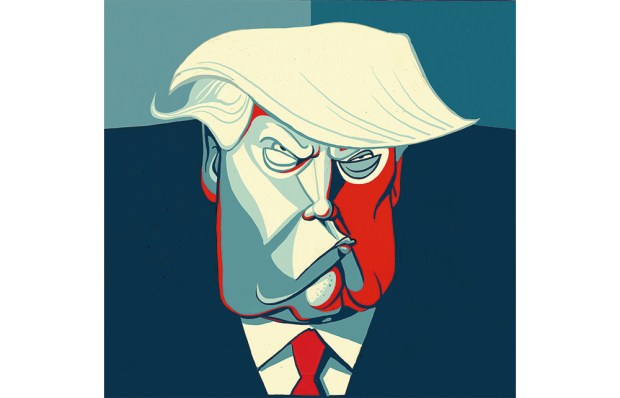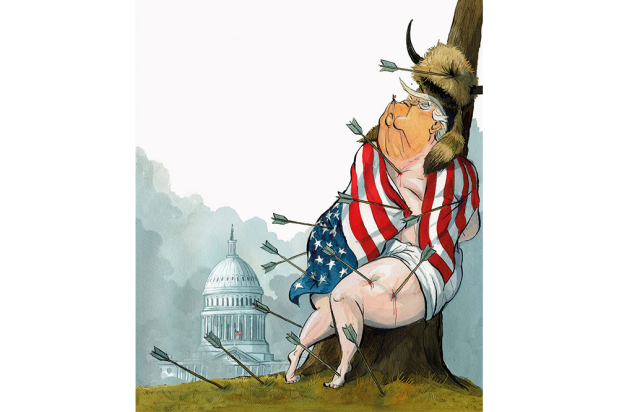Dear Prime Minister, You already have quite enough on your plate. So forgive me if I hoist a storm cone over another potential problem. I refer to the US presidential election on 3 November and the possibility of its ending in deadlock and confusion.
I was the British ambassador to Washington during the Bush/Gore election of 2000. The outcome hung in suspense for a month. Everything turned on which contestant had won more votes in Florida. In the end, the matter had to go to the US Supreme Court for a decision. I was present at the hearing. After 9/11, it was the most dramatic moment of my time in Washington.
The events of November and December 2000 were a stress test for the American constitution. Despite many alarums and excursions, due process and the rule of law prevailed in the end.
But if the worst fears of Trump’s enemies for this year’s election are realised, it will make the events of 2000 look like a storm in a tea cup.
The greatest of these is that President Trump will lose the election to the presumptive Democratic candidate, Joe Biden, but refuse to accept the result. This would provoke a crisis not seen since the contested election of 1876 between Rutherford Hayes and Samuel Tilden.
You would, I suspect, be endlessly pressed to comment, even do something, about the extraordinary situation in which a defeated president declines to leave office. Please do not rise to the temptation. Intervening in other people’s domestic affairs is a mug’s game. If you have to say something, stick to motherhood and apple pie.
While you maintain your silence, Karen Pierce and her embassy will be beavering away to prepare the ground for whatever result emerges: it’s what ambassadors do. As the lawyers duked it out in 2000, I had a meeting with Condoleezza Rice that paved the way for Tony Blair to be the first European leader to meet the new President. My staff and I were also able to arrange for the prime minister’s top advisers to meet the president-elect’s senior team before the inauguration. This was helped by the fact that Blair was scrupulous in not even hinting at a preference as the court fight raged.
The numbers certainly point to a Trump defeat. He is polling badly for his handling of Covid-19. Most Americans think that their country is going in the wrong direction. As I write, Biden has a respectable single-digit lead nationally and in the half-dozen or so big battleground states.
I used to have a rule of thumb that you should not trust the polls until after the Labor Day holiday on the first Monday in September. That was when Americans started seriously to focus on who to vote for. I had learnt a sharp lesson in 1988 when the Republican candidate, George H.W. Bush, overcame the enormous 17-point lead enjoyed in July by his Democratic opponent, Michael Dukakis.
For the moment I would be cautious about a Biden victory. Much could happen between now and November. The pandemic could abate and the economy recover. An American-made vaccine might even be discovered for which Trump would take the credit. Though Trump’s approach to policing does not look much different from that in Hong Kong or Moscow, law-and-order plays well in America. There will be skulduggery too. The Republicans, where they are in control, will pull out every stop to suppress the African-American and Latino vote, the Democrats’ natural constituency. Minorities will find it hard to register. In-person polling stations will be few and far between. Coronavirus may be used as an excuse to make things even more restrictive.
All that said, Trump and his advisers know how to run the numbers and clearly do not like what they see. It explains his short-lived trial balloon suggesting the election’s postponement because of coronavirus, an idea not totally without merit coming from someone less unscrupulous. The combination of Covid-19 and the sharp rise in unemployment has driven a coach and horses through a re-election strategy based on prosperity and growth. Trump fears defeat. That is why he is obsessively attacking the integrity of the postal vote, which is apparently running strongly for Biden. Even before Covid-19 the ‘mail-in’ vote accounted for a quarter of those cast. No wonder some are anxious that the new postmaster general, a Trump appointee, will interfere with the postal service to Trump’s advantage.
If Trump is beaten in November, the charge of election fraud offers him two options: a face-saving excuse, if he wants to go quietly; or a reason for not accepting the result, if he tries to hang on in the White House. Who knows which way this erratic and thin-skinned fabulist will jump? The constitution gives him almost three-further months in the White House before he is required to relinquish office at noon on 20 January 2021. That allows plenty of time for several changes of mind, all kinds of machinations, and intervention again by the Supreme Court.
If by Inauguration Day there is still deadlock between Trump and Biden, the presidency passes to the president pro tempore of the Senate, Chuck Grassley of Iowa, who by then would be 87. In 2001 it would have been the 98-year-old Strom Thurmond of South Carolina.
By the way, to end on a pessimistic note, I fear that the draft free-trade agreement could be mislaid in the mess.
Yours sincerely,
Christopher Meyer
Got something to add? Join the discussion and comment below.
Get 10 issues for just $10
Subscribe to The Spectator Australia today for the next 10 magazine issues, plus full online access, for just $10.
You might disagree with half of it, but you’ll enjoy reading all of it. Try your first month for free, then just $2 a week for the remainder of your first year.














Comments
Don't miss out
Join the conversation with other Spectator Australia readers. Subscribe to leave a comment.
SUBSCRIBEAlready a subscriber? Log in